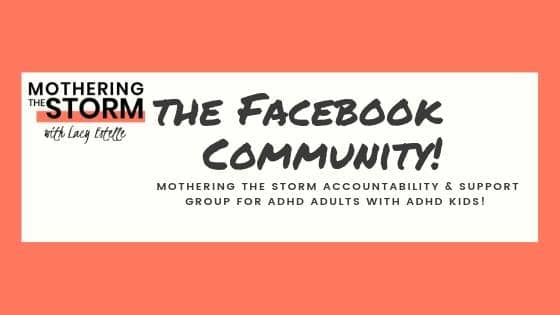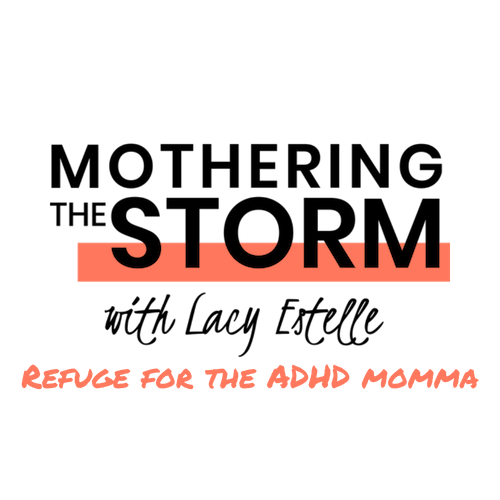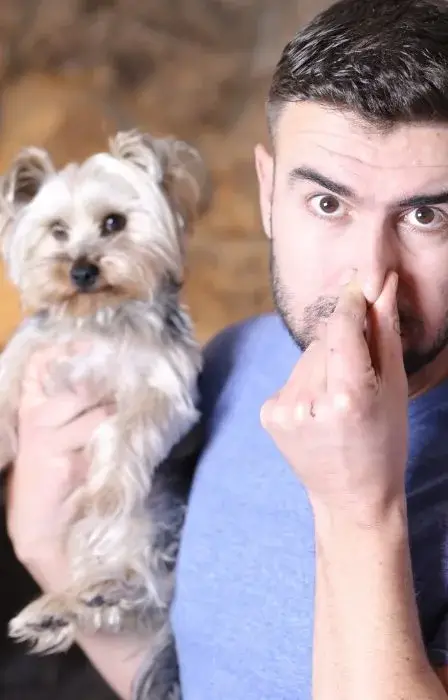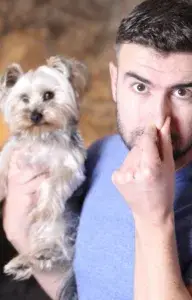This post may contain affiliate links. This means, if you make a purchase from a link on this page, I may receive a small commission at no extra cost to you. You can find our entire disclaimer here.
Tell someone else!
Parenting an ADHD child somedays can feel like squashing water. It feels like every day an uphill battle, on a treadmill. You’re putting in all the effort, and yet it looks like there is just no progress.
I can remember breaking down hard with my ADHD child one day. I was crying; he was crying. I

Click Here to Join the Mothering the Storm Facebook Group! An Encouragement Group For Parents who have ADHD and are also caring for an ADHD Child!
“Somedays, you make me feel like a terrible mom!”
The words left my mouth before I had much time to think about their consequences. Telling him he makes me feel like a terrible mom didn’t help us, it only hurt. (Read my article about being an ADHD Mom here.)
By the time it was all said and done, he felt awful. I felt terrible, and I knew the way I was doing things had to change.
The change started by disciplining myself to learn and understand ADHD in children and how it affects their behavior. Then I had to

It’s easy to lose our temper while raising kids with ADHD. If you’ve ever heard yourself say these 7 knee-jerks reactions to your ADHD child do your best to bite your tongue. Instead, try these alternative
7 Things Not to say to an ADHD child, and what to say instead:
1.”Why are you like this?”
When you become tempted to question your child’s motives, take a step back, count slowly to 10 and take a deep breath. Remind yourself that they aren’t this way because they choose it. They are this way because their brains make it difficult for them. Their minds may, in fact, be developmentally behind.
Try this instead:
Say “I can see you are having a hard time right now, do you need to be alone?”
If they say yes, give them alone time somewhere. Their room or couch is a good place. Be sure to emphasize that they are not in time out or being punished but that sometimes everyone needs a moment to collect themselves and regroup.
It’s important to not to teach a child skip over emotions when they have them. Going through them helps strengthen their emotional muscles. Going through them, in the long run, will make it easier for them to handle emotions as an adult. You can read my post about ADHD Husbands and abusive tendencies here.
2.”You know better!”
But they don’t. We as adults make the mistake of thinking our children know everything we know. They don’t, plain and simple. It must be taught.
Instead, try saying this:
I’m disappointed in your choice right now. It wasn’t the best decision, and I think you are capable of better decisions. This statement reinforces that you have faith in them, but that you think they need to take longer next time to make a better choice. After all, life is all about choices.
3.”Calm Down!”
If your spouse has ever said this to you, I think you know how well it works at actually taming emotions. Children with ADHD have big feelings. They feel things on a deeper, scarier level than their neurotypical friends. And their peers may have brains that are developing the ability to maintain composure and remain calm. But that lack of executive function in the ADHD child’s mind makes calming techniques hard to remember when stuff hits the fan.
Try this:
Ignore the tantrum. Ask your child if they will take one deep breath for you. If they are like my child, they will begin to argue about taking a deep breath. Repeat your request “Take just one for me.” Eventually, you may get an exacerbated and quick “Hee hoo.” It’s not a real deep breath, but it is a
4.”Stop Crying! Stop!”
Like I said about Calm Down, telling your child to stop like telling a moving train to stop mid travel. Crying is an emotion with momentum. It’s a release. Like sweating. It’s our bodies natural reaction to hurt, anger, sadness, etc. Children with ADHD need that release as much as the rest of us, they just may need it more often than we are comfortable listening to.
Try this:
Instead of telling them to stop, or asking them to stop merely say “I’m sorry you are upset. It’s ok to be _” fill in the blank with whatever emotion you believe set them off (i.e., sadness, anger, disappointment, frustration). Validating their feelings goes a lot further than attempting to shut them down. Ask if they need alone time. If the crying is giving you anxiety and making you very uncomfortable, it’s not uncalled for to ask them to go cry in another room. Maybe even hug their bear or something they care about until they are done crying. Remember, go through the emotion, not around it.
5.”What is wrong with you?”
This phrase truly hurts my heart. But I know it’s been said. I’ve even mentioned it in times of high stress and lack of patience. There’s nothing innately wrong with your child, they have a chemical imbalance in their brain. They didn’t choose it, and can’t do anything about it. But effective parenting can empower them to conquer anything with practice.
Try the technique I cite under “why are you like this?”
6.”You Never Listen! You Always Do this!”
Saying such absolute words like “Never” and “always” tend to put the person under immediate defense. Including children. Chances are it’s not that they “never” listen. Or that they “always” argue. Just often enough that it feels that way. You can read more about absolute words and their detriment in this article on Out of the Fog.
It’s frustrating when it feels like your ADHD child’s whole day has been an argument after argument or tantrum after tantrum. Stay calm Momma, take today just for today. Even if you have to count the minutes between fits. Today is one day, in a string of one-days. Just for today, it’s hard, maybe tomorrow will be more comfortable.

7.”Stop Squirming! Stop Moving!”
When you are raising kids with ADHD, it may
Often times when parenting an ADHD child, moments can feel hopeless, and parents feel helpless. Sometimes it’s not always about what you are saying but about what not to say to your ADHD child, that matters most.
Just remember to stay calm, and that you are the adult.
Pin this to your ADHD Parenting Board for quick reference later! You know, when you’re about to lose your cool over dinner.









